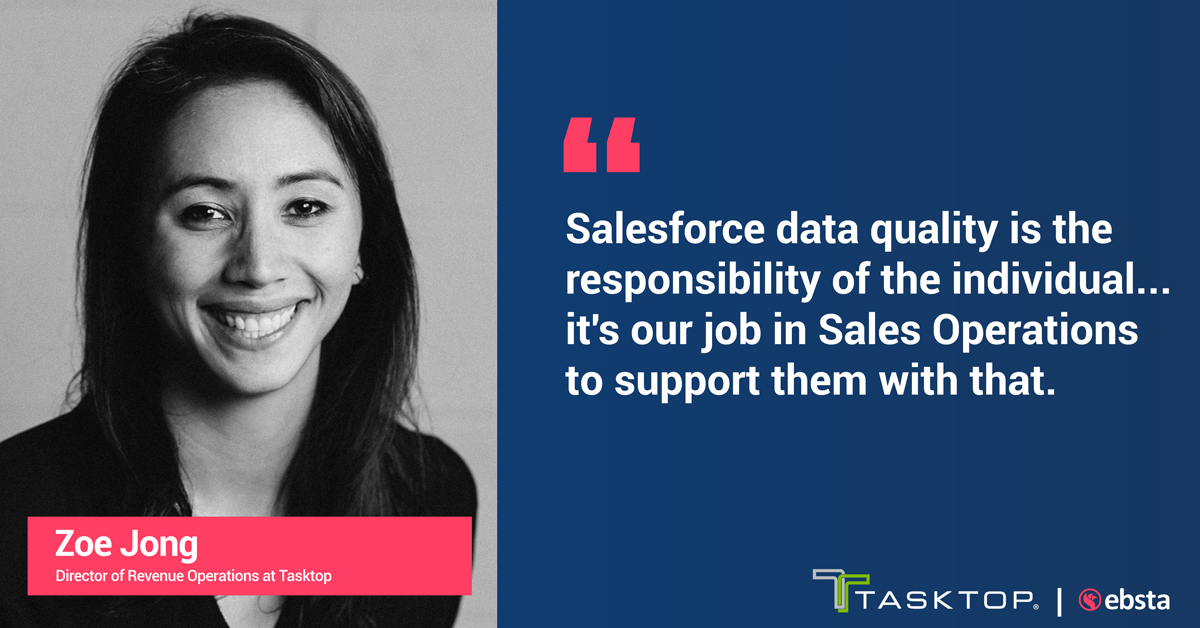Table of Contents
Share this article
Learn from the brightest minds how to predictably and efficiently grow revenue.
Related Content
Lessons in Scaling Cybersecurity Sales with Dean Hickman-Smith
This week on the Revenue Insights Podcast, Guy Rubin, CEO of Ebsta, speaks with Dean Hickman-Smith, Chief Revenue Officer at HackerOne on Scaling Cybersecurity Sales. In this episode, Guy and Dean explore the evolution of sales leadership, the power of community in B2B sales, and how AI is transforming sales enablement and performance. Dean Hickman-Smith…
Building High-Converting Teams with Sean Murray of LeadIQ
This week on the Revenue Insights Podcast, Graham Smith speaks with Sean Murray, Senior Director of Sales and Sales Development at LeadIQ. In this episode, Sean shares his journey to tech sales, discusses his approach to building high-performing SDR teams, and explains why quality outreach trumps quantity in today’s sales landscape Sean Murray is Senior…
Transforming Productivity Metrics with Mike Perrone, Chief Operations Officer at Prodoscore
This week on the Revenue Insights Podcast, Guy Rubin, founder and CEO of Ebsta, speaks with Mike Perrone, Chief Operations Officer at Prodoscore. In this episode, Guy and Mike discuss data-driven productivity scores, bridging employee flexibility with executive accountability, and how to empower sales teams through actionable insights and tailored coaching. Mike Perrone is Chief…
Director Of Revenue Operations: Zoe Jong of Tasktop
Zoe Jong jumped onto Sales Operations Demystified to share her knowledge and experience in Revenue Operations. Check out all the other episodes of Sales Operations Demystified here.
You can learn more about:
Table of Contents
Tools Mentioned:
- Salesforce
- Discover Org
- Cirrus Insights
- Krisp
- Jira
- Chorus
- Slack
What You Will Learn:
- How Zoe drives productivity in her remote sales team
- Why data quality is the responsibility of the individual
- How Zoe got into sales ops after starting out as the EA to the CEO
Key Takeaways
There are many routes into sales ops
Zoe took a very non-traditional route into sales ops. She studied chemistry at college but wanted to work more with people. She landed a position as a “glorified receptionist” at Tasktop and found that she could take on more responsibility after finishing her day-to-day tasks.
After spending a total of nine years at Tasktop in roles ranging from Executive Assistant to the CEO, right through to Director of Revenue Operations.
Three people can manage a go-to-market team of eighty resources
Zoe’s revenue operations team at Tasktop consists of three people that manage a team of 80 resources, spanning sales, marketing, and customer success.
This is a little higher than we normally see in businesses we interview on the podcast, the average ratio of ops to go-to-market resources is 1:20.
Data quality is the responsibility of the individual
When questioned about data quality, Zoe immediately said that data quality is the responsibility of the individual, not the revenue operations team.
Zoe’s team is responsible for making sure that the data brings value to the business. They are not responsible for populating the data in the CRM and the data that sits with the individual.
Zoe does also say that it is their responsibility to make the data entry process as simple as possible for the go-to-market resources by adding validation and automation to fields.
How to drive rep productivity with a remote sales team
Tasktop has a remote sales team and runs a “non-tracked” process as they have a relatively large ACV and need to meet with prospective customers face to face.
That said, they are doing a couple of things this quarter that aim to drive productivity. First, they are implementing Chorus to record all sales calls for training and feedback purposes.
They are also speaking with every seller and asking them questions such as: “What’s keeping you from doing your work? What do you find the most tedious? What do you think you could use training on?”.
They will then collate all the data and make a roadmap of projects to help drive productivity. The last time Zoe and her team did this they discovered a couple of tech tools that sales reps were using that they ended up rolling out company-wide.
Measure actionable conversions between different stages in the pipeline
Instead of measuring “the number of demos we’ve done”, Zoe and her team like to measure conversion rates between stages in the pipeline over time such as the “percentage of technical one evaluations that have gone to close won”.
This metric is more actionable as it allows Zoe’s team to work on strategies to improve this specific conversion rate before moving onto the next one to optimize.
“From a purely operational perspective, those are the type of metrics that I love because I think in and of themselves, they highlight areas that can be improved.”
Subscribe To Sales Ops Demystified:
Quote:



